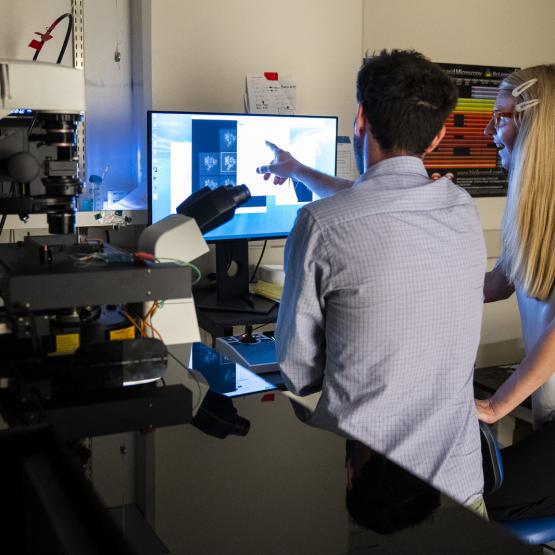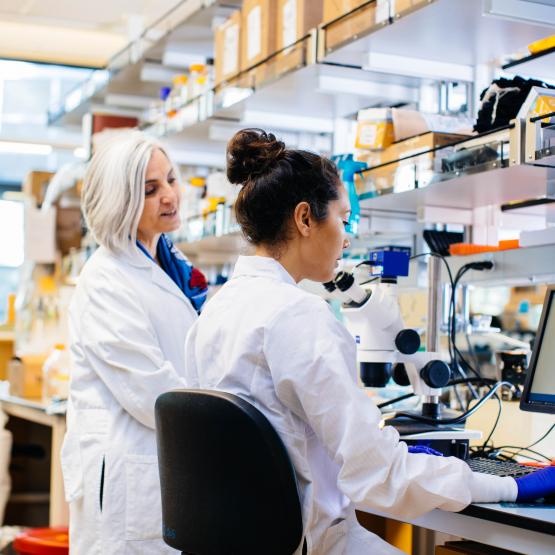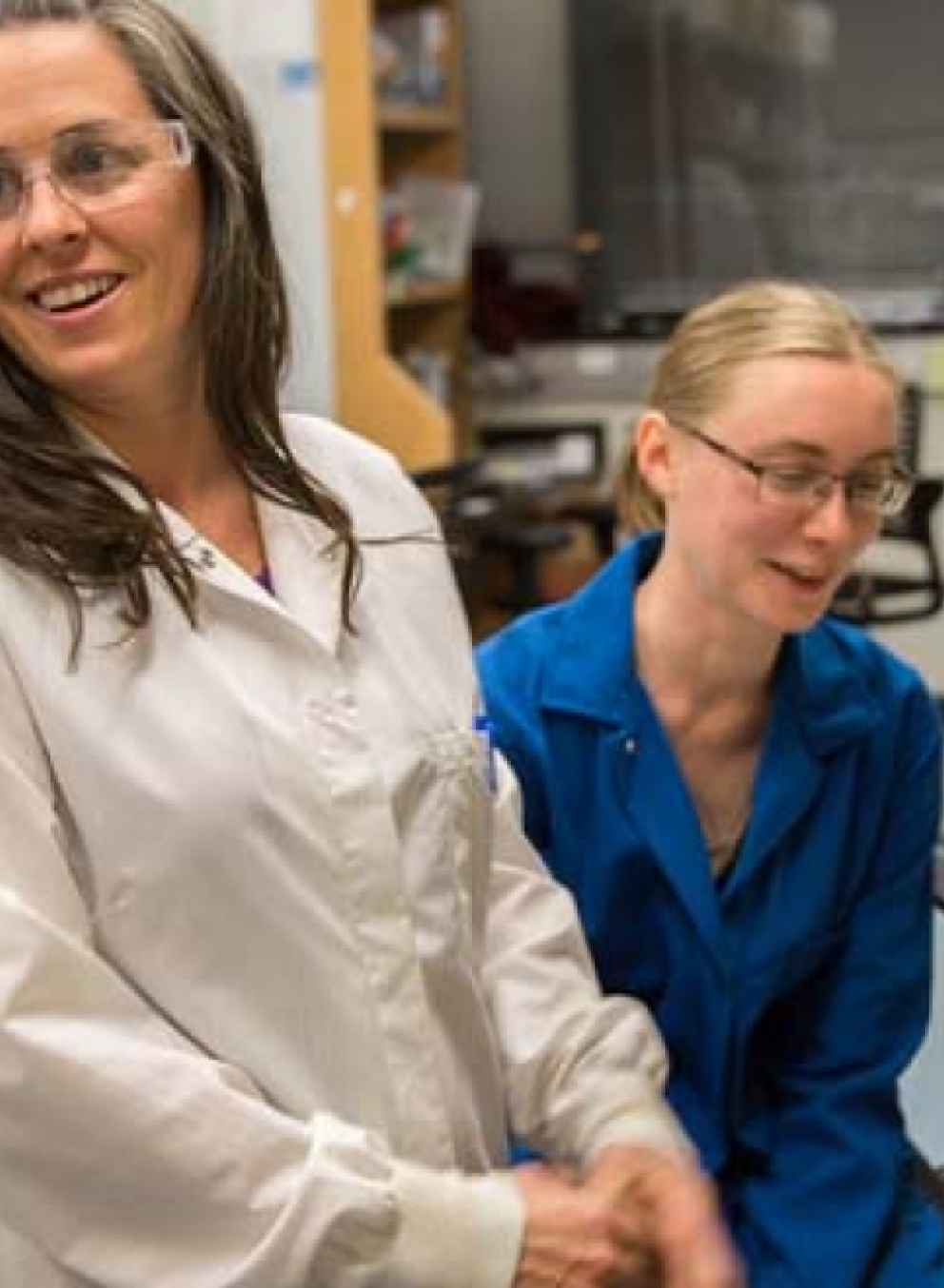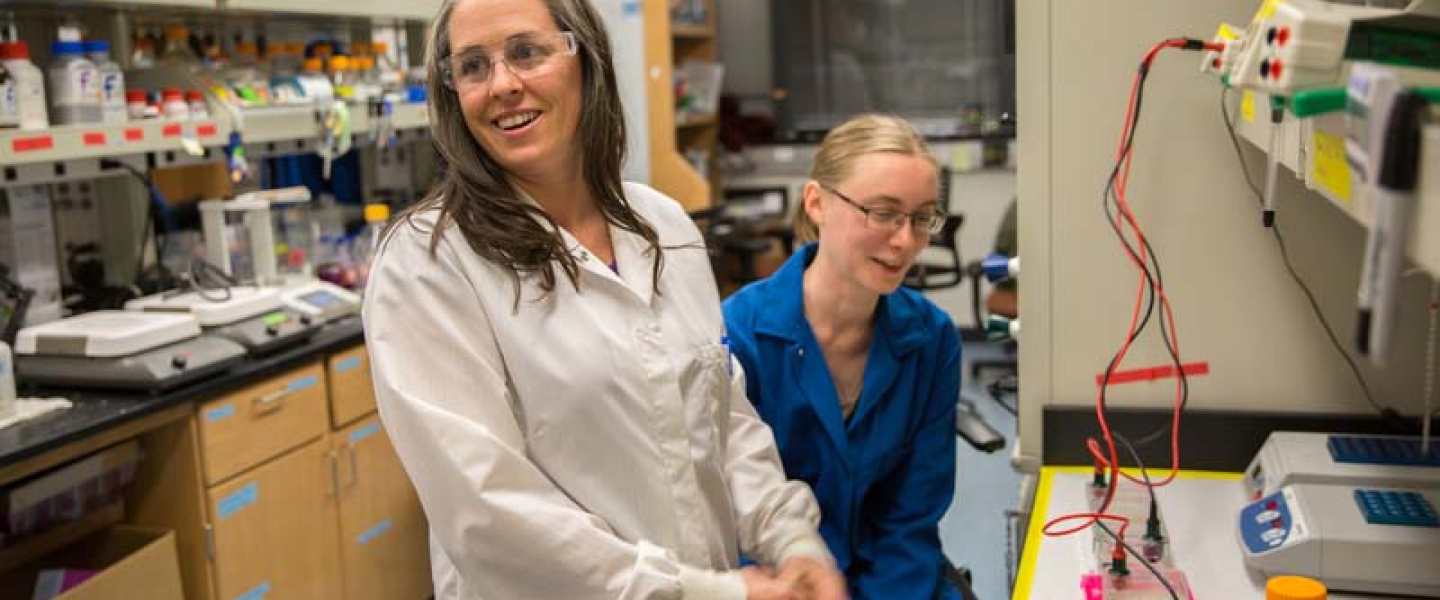- Engineering & Technology
- B.S.
- M.S.
- Ph.D.
- Undergraduate Minor
- Jack Baskin School of Engineering
- Biomolecular Engineering
Program overview
Biomolecular Engineering and Bioinformatics is an interdisciplinary program that combines expertise from biology, mathematics, chemistry, computer science, and engineering to train students and develop technologies to address major problems at the forefront of biomedical and bio-industrial research. The program builds upon the research and academic strengths of the faculty in the Biomolecular Engineering Department, as well as many other departments.

Learning Experience
The Biomolecular Engineering concentration is designed for students interested in protein engineering, stem cell engineering, and synthetic biology. The emphasis is on designing biomolecules (DNA, RNA, proteins) and cells for particular functions, and the underlying sciences are biochemistry and cell biology.
The Bioinformatics concentration combines mathematics, computer science, and engineering to explore and understand biological data from high-throughput experiments, such as genome sequencing, gene-expression chips, and proteomics experiments.
Study and Research Opportunities
- There are two concentrations in the major: biomolecular engineering (wet lab) and bioinformatics (dry lab).
- There is a minor in bioinformatics, suitable for students majoring in the life sciences.
- All major students have a 3-quarter capstone experience, which can be an individual thesis, an intensive group engineering project, or a series of project-intensive graduate bioinformatics courses.
- One of the capstone options for the concentration in biomolecular engineering is the international iGEM synthetic biology competition, which UCSC sends a team to every year.
- Students are encouraged to participate in faculty research early, particularly if they intend to do a senior thesis.
First-Year (Freshman) Requirements

Transfer Requirements
This is a screening major. Transfer students need to have completed eight transferable courses that count toward the major, with a GPA in those courses of 2.8 or better. However, students are recommended to complete at least ten transferable courses prior to transfer, as they may otherwise have difficulty finishing in a timely fashion.
Students may satisfy the bioethics requirement if they have completed a suitable ethics course at their community college before transfer, even if the course does not articulate to BME 80G.

Internships and Career Opportunities
Students in Biomolecular Engineering and Bioinformatics can look forward to careers in academia, the information and biotechnology industries, public health, or medical sciences.
Unlike other engineering fields, but like life sciences, biomolecular engineers generally need to get Ph.Ds to get cutting-edge research and design jobs.
Those in bioinformatics can get good-paying jobs with just a B.S., though an M.S. degree offers the most potential for rapid advancement.
The Wall Street Journal recently ranked UCSC as the number two public university in the nation for high-paying jobs in engineering.

